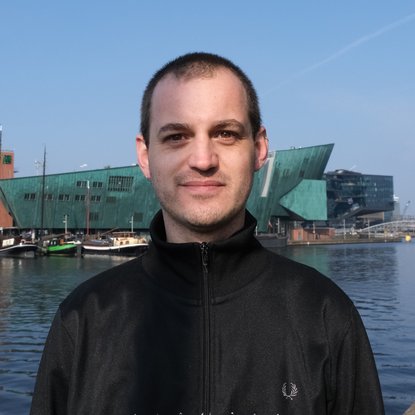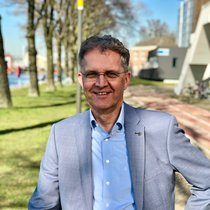As cities grow denser, managing household food waste in high-rise buildings presents unique challenges. Traditional collection methods, such as public containers and home bins, struggle to provide the efficiency and circularity needed for sustainable urban living. Organic waste, particularly in high-density areas like Amsterdam, contributes significantly to the volume of residual waste, increasing costs and limiting the reuse potential of valuable organic materials.
Photo by Stefan Verkerk
Turning a challenge into an opportunity
To tackle these issues, a consortium of municipalities, including Amsterdam, Rotterdam, The Hague, Utrecht, Haarlem, and Rijkswaterstaat, has launched research at AMS Institute into a new food waste collection system utilizing food waste grinders (FWGs). These grinders, widely used abroad, offer a more efficient way to handle organic waste at its source.
However, unlike the systems in countries like the US and UK, which dispose of waste through sewers, this Dutch initiative is designed to separate organic waste for reuse in sustainable applications. The project seeks to develop a system where waste is separated, with only water being disposed of. The separated organic materials can then be transformed into new products such as compost, soil improvers, or even fertilizers.
Solutions for Amsterdam’s vertical living
This system is particularly relevant for Amsterdam and the Randstad region, where the concentration of high-rise buildings calls for innovative waste management solutions. The new system would significantly reduce residual waste volumes and optimize organic waste collection, aligning with Amsterdam’s goals for a more circular and sustainable urban environment.
Shaping the future of urban waste management
AMS Institute hosts the experimental setup as part of an ongoing experiment at the Marineterrein Living Lab (MALL) to test and refine the system. This involves optimizing the technical settings of the FWGs and ensuring they meet the Dutch legal framework, which prohibits disposal via sewage. The system separates organic waste and stores it in containers for collection by the city's existing waste services. This should lead to higher collection rates, reduced costs of residual waste management, and improved quality of reusable organic materials.
Photo by Stefan Verkerk
The goal of this test setup is to create a scalable, efficient, and environmentally friendly solution for food waste collection in high-rise buildings, contributing to Amsterdam’s circular economy. By reducing the organic content in residual waste, this system will lower post-sorting costs and enhance the reuse potential of food waste, demonstrating a sustainable solution for other cities facing similar challenges.
| Duration: |
|
Principal Investigators
Partners









